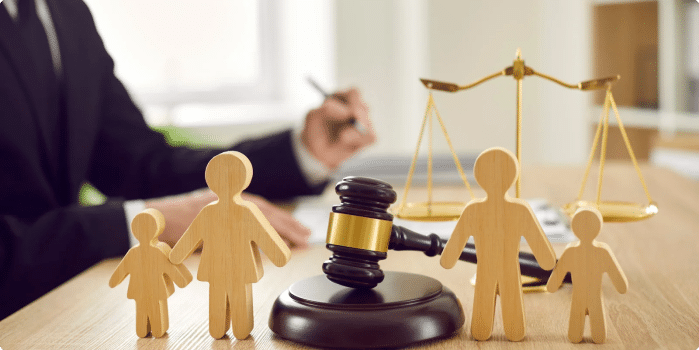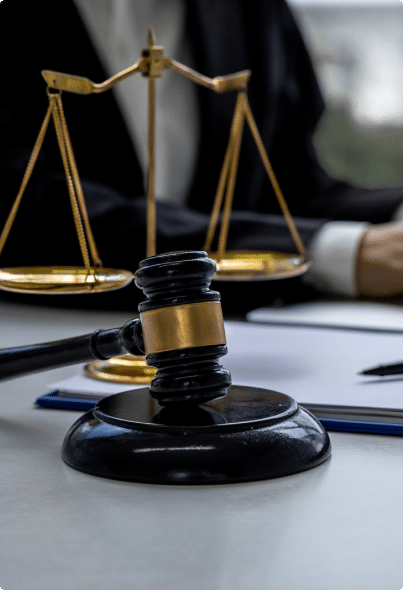Florida Guardianship Lawyer
Guardians are critical in helping some of society’s most vulnerable people. They protect the interests of minors whose parents are absent or unfit and adults who cannot fully care for themselves. Guardians are responsible for the everyday needs of their charges and sometimes help them with financial matters.
If you are considering becoming a guardian, partner with an experienced Florida guardianship lawyer. At The Law Offices of Travis R. Walker, P.A., our attorneys have an in-depth knowledge of the Sunshine State’s complex guardianship laws and can help you make a smooth transition and avoid future problems.
Types of Guardianship in Florida
Guardianship is a legal process used for people who cannot make or communicate good decisions about themselves or their property. Under this process, the guardian receives the authority to make certain decisions on behalf of the person.
Florida law allows for guardianship of minors and incompetent adults. As a guardian, you may protect your ward’s health and welfare, manage their finances, or both. Florida law dictates who can serve as a guardian.
Guardianship of Minors
You can apply for guardianship of a minor if the child’s parents have died or a judge rules them unfit due to abuse, drug use, mental incapacitation, or some other reason. Sometimes, parents set up a pre-need guardianship directive stating their wishes if they can no longer raise their children. They may also name a guardian in a will, though that is subject to court approval.
A judge may appoint a financial guardian if a minor receives more than $15,000 as part of a settlement or inheritance. They consider the parents first but may appoint someone else. If the child receives such a settlement and has no parents, a guardian may take over raising them and seek authority over their property. A judge may also appoint a third party in such a situation.
Guardianship of Incapacitated Adults
Unless an adult signed a power of attorney, a judge must rule them incapacitated before you can assume guardianship. Even with a finding of incapacitation, judges will lean toward the least restrictive means to care for their needs. You can petition for guardianship of elderly parents or another adult you believe needs your protection.
Importantly, while a power of attorney grants an agent the ability to make decisions for another person, the person retains the authority to make decisions independently on their own behalf. You do not receive exclusive authority to make all decisions on a ward’s behalf until a judge signs a guardianship order.
Limited Guardianship vs. Plenary Guardianship
Florida law allows for limited and plenary guardianships. Limited guardianships help those who can handle some—but not all—of the tasks necessary to manage their personal and financial affairs. It allows guardians to make certain decisions that are laid out specifically in a guardianship order.
A plenary guardianship gives you power over all aspects of another’s life. It helps people who are unable to care for themselves at all. Both limited and plenary guardianships are subject to ongoing judicial oversight.
Our Florida guardianship lawyers understand the law’s requirements and can guide you through the legal guardianship process with compassion.
What Can a Florida Guardianship Lawyer Do for You?
An experienced guardianship attorney in Florida can help you with all aspects of the process, including the following:
- Legal representation: In a guardianship case, you must protect your interests and those of your potential ward. A skilled attorney knows the law and can help you with common and more complex issues, such as if someone wants to remove a guardianship.
- Advocacy for the ward's best interests: The role of a guardianship lawyer goes beyond that of protecting you. When they guide you through becoming and acting as a guardian, they are also working to protect the interests of your ward.
- Assistance with court proceedings and documentation: To navigate the process smoothly, you need an accomplished guardianship attorney to help you file documentation on time and in the proper courts and represent you in guardianship proceedings.
- Ensuring compliance with Florida guardianship laws and regulations: Taking legal responsibility for someone else is an ongoing commitment. Your attorney knows current guardianship laws and regulations and can advise you on whether you are compliant and how to stay that way.

Currently Accepting New Clients
Guardianship Related Pages
Our Office
Port St. Lucie OFFICE
-
10026 S U.S. Hwy 1
Port St. Lucie, FL 34952 - 772-325-1860
- 772-673-3738
Client Testimonials
Simply enter your email below and join our growing community of informed individuals.
When To Seek a Florida Guardianship Attorney
There are several signs that someone you know or love may need a guardian to take care of them or to trigger legal intervention in their affairs.
When a Minor Needs a Guardian
- Loss of parents
- Abuse or neglect
- Abandonment
- Parental incapacitation
- Parental criminal activity
- Receipt of a large sum of money
Signs an Adult Might Need a Guardian
- Failing to take care of their physical needs
- Dangerous forgetfulness, such as leaving burners on or wandering
- A severe dip in finances
- Unpaid bills, or threats of eviction or foreclosure
- Evidence of physical abuse by others
Remember that Florida judges tend to avoid guardianship of adults if less restrictive options are available. The goal is to care for people while allowing them to retain some independence. A judge may disapprove of a guardianship but grant a power of attorney over specific affairs.
People facing guardianship help must seek legal representation quickly. The sooner an experienced attorney understands your situation, the faster they can guide you through the process and help you file the required documentation.

Remember that Florida judges tend to avoid guardianship of adults if less restrictive options are available. The goal is to care for people while allowing them to retain some independence. A judge may disapprove of a guardianship but grant a power of attorney over specific affairs.
People facing guardianship help must seek legal representation quickly. The sooner an experienced attorney understands your situation, the faster they can guide you through the process and help you file the required documentation.
Process of Obtaining Guardianship in Florida
The Florida guardianship process has several steps. These include the following:
- Initiating guardianship proceedings: When you petition for guardianship, you must provide information about yourself and your potential ward and explain why you believe they need a guardian. The judge may appoint a guardian ad litem to serve as a temporary guardian during the proceedings.
- Court hearings and evaluations: If you seek guardianship of an adult, you must petition to have them declared legally incapacitated. If the judge determines the person is incapacitated, or if you seek guardianship of a minor, a guardianship hearing will follow. You, your potential ward, and other family members will receive notice of the hearing. There may be additional hearings if someone challenges your guardianship.
- Appointment of a guardian: A judge will determine whether a potential ward needs a guardian, whether there is no less restrictive option, and whether you are qualified. Once appointed as guardian, you must submit initial and annual plans for your ward's care. There are additional requirements if you have control of your ward's finances. Guardians must also attend instruction and training within four months of their appointment.
A skilled attorney experienced in Florida guardianship cases is critical at each stage. They know the law and what judges are looking for in guardians. They can protect your interests at each step and guard against mistakes that prolong the process.
Challenges and Complexities in Guardianship Cases
Guardianship cases are complex, particularly if someone challenges your guardianship. For example, another relative may initiate a contested guardianship. You may also have to deal with complex medical or financial concerns. When necessary, you can ask the court to appoint you as the guardian of the person and someone else as the guardian of the property.
If your potential ward has serious medical issues, you must demonstrate that you can properly care for them. If you do not provide sufficient proof, a judge may appoint another guardian or make that person a ward of the state.
Our Florida guardianship attorneys can help you navigate these complexities. We have experience helping people in similar situations find solutions that promote everyone’s interests and satisfy the court.
Criteria for Choosing a Guardianship Lawyer in Florida
When choosing a guardianship lawyer, look for one with experience representing wards and guardians. Florida requires that wards have attorneys, so their advice can be invaluable as they have spent time learning the guardianship legal process from multiple angles.
Ask prospective attorneys about their experience in other aspects of family and probate law, too. A breadth of knowledge and experience in family law matters lets your lawyer advise you not just on guardianship but also on other issues that may crop up.
Check reviews to look for comments specifically about guardianship and family law. Because these cases are complex and sensitive, look for testimonials of compassion, legal knowledge, and communication skills.
Cost of Hiring a Guardianship Lawyer in Florida
A Florida guardianship lawyer may charge an initial consultation fee, request a retainer, and bill hourly. A retainer is an upfront payment from which they will deduct hourly charges. You may also also need to pay court fees when submitting your paperwork. For example, the fee for filing a guardianship of person and property is $400 in Martin County.
The overall legal costs depend on the complexity of your case and whether someone challenges your guardianship, making the proceedings last longer. In some cases, guardians can petition to have the ward’s funds cover the attorney fees.

How The Law Offices of Travis R. Walker Can Help in Your Florida Guardianship Case
At the Law Offices of Travis R. Walker, P.A., our attorneys have extensive experience with guardianship matters. We understand the laws regarding legal guardianship and provide compassionate support throughout the legal process.
We are a full-service legal firm committed to community service and helping people who need quality legal representation. Our clients have praised our communication skills, professionalism, comprehensive services, and results in client testimonials.
If you need help with a guardianship issue, contact our team to schedule a consultation.
Frequently Asked Questions
It is common to have questions about the complex Florida guardianship process. These are some of the more common we hear from our clients.
Are There Factors That Exclude You From Being a Guardian?
You must be at least 18 to serve as a guardian in Florida. You may not be a guardian if you were convicted of a felony or certain offenses related to child abuse. It is best to consult an attorney before you start the guardianship process to see if you qualify.
How Long Do Guardianships Last?
Only temporary guardianships and emergency temporary guardianships have a set duration. Others last until a minor reaches 18 or a judge determines an adult is no longer incapacitated.
Can Guardians Resign?
Guardians can resign but must do so through the courts. They must provide a final report of their guardianship, copies of the ward’s health records, and other documentation as required by law.
Do I Need a Background Investigation To Be a Guardian?
A judge may require criminal and credit background investigations before allowing you to serve as a guardian. The results of these reports may lead to questioning from the judge.









